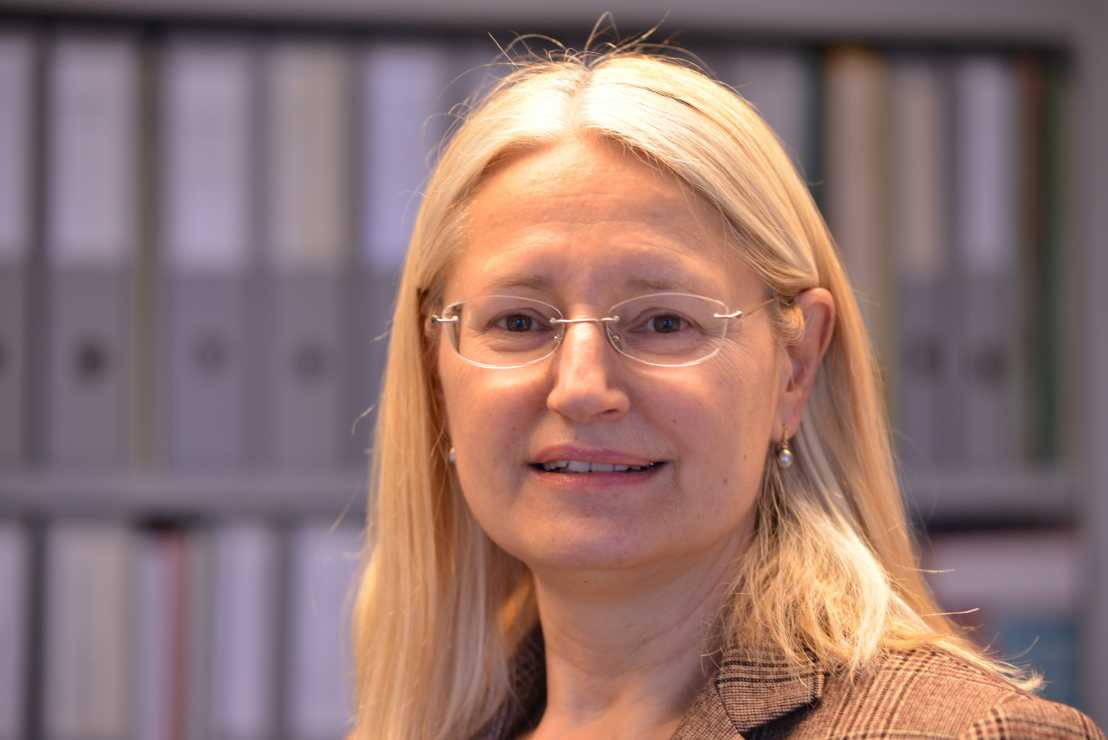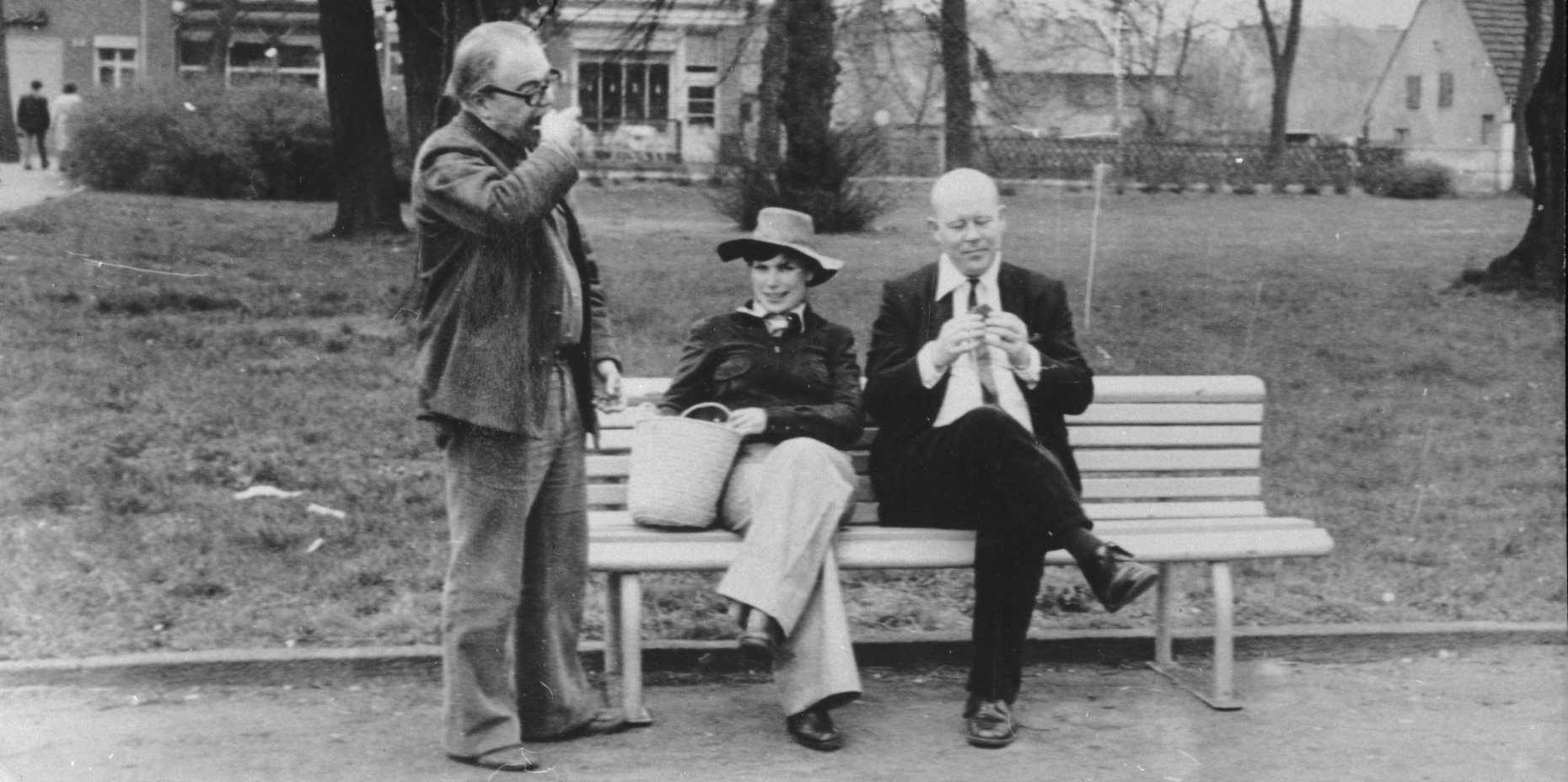Frisch’s secret diary
In these days, a diary of Max Frisch has been published, which was previously unreleased. The writer describes in it his first year in Berlin.
There was great excitement in 2011 when a secret diary written by Max Frisch was discovered, deliberately kept under wraps until 20 years after his death. In these days, a part of the diary has been published with the title “Aus dem Berliner Journal”. ETH News spoke to Margit Unser, Head of the Max Frisch Archive, who assisted with the publication of the “Berliner Journal”.

Dr. Unser, there is a huge reaction to the publishing of the book. Can you explain why?
To start with, Max Frisch is still a very popular author with a large fan base interested in anything related to him and his life. There’s also the fact that Max Frisch himself requested the diary be kept secret. This revelation obviously heightened the intrigue. I’m sure many hope the “Berliner Journal“ contains more intimate details about his life, particularly about Frisch’s failed marriage.
And does the diary satisfy this voyeuristic urge?
No, readers interested only in potential scandals should look elsewhere. To protect right to privacy of Frisch’s former wife, we decided to publish just the first two of the five notebooks for the time being and have also omitted certain sections from the published version. Moreover, “Berliner Journal” is filled with dense literary texts that were intended for a wide readership from the outset.
How likely is it that the remainder of the diary will be published at some point?
I understand of course that Max Frisch researchers would prefer it if the entire contents of the diary were already available in an edited form. However, for legal reasons the third, fourth and fifth notebooks cannot be published at this stage.
The diary essentially came directly from a safe to you at the archive. What surprised you most when you first read it?
The passages about the German Democratic Republic (GDR) impressed me the most. Max Frisch, moved to West Berlin in 1973 in search of new experiences, yet directed his gaze predominantly at the eastern part of the city. He frequently met with GDR authors like Christa Wolf, Jurek Becker, Günter Kunert and Wolf Biermann. Using his highly acute observational skills, he wrote entirely impartial descriptions of the situation facing intellectuals under the GDR dictatorship.
What does the reader find out about Max Frisch the man?
As always, Frisch is very critical in his assessment of himself. There’s the considerable age difference between him and his wife (she was 28 years younger), which clearly becomes a problem. He’s an alcoholic, he sees himself as old and unattractive. This torments him a great deal. Added to this are his doubts about his own work and use of language.
What makes “Berliner Journal” unique?
It contains exceptional portraits of other authors, such as Hans Magnus Enzensberger, Christa Wolf and Günter Grass, who Frisch socialised with in his quest for publicity. His fiction is extraordinary – for example, in one of my favourite stories, he describes Zurich as a divided city. Unlike divided Berlin, in Frisch’s Zurich it’s the affluent district of Zürichberg in the east which is being held prisoner. The mood that must have pervaded Berlin at the time is utterly tangible in his vision of divided Zurich – it’s brilliant!
How important was the Berlin period in Max Frisch’s life?
There’s an unusual contradiction here: he describes the time spent in Berlin as unproductive. Whatever he attempts ends in failure; he runs out of ideas. However it’s precisely during this period between 1973 and 1979 that he produced some of his most important later works, such as “Dienstbüchlein”, “Montauk” and “Der Mensch erscheint im Holozän”.
Why did Max Frisch go to Berlin?
Max Frisch didn’t go to Berlin on a whim. He had already been there twice as a student, then during the war he was unable to travel. When Frisch returned to Berlin in 1947 and 1948, he wrote in his notebooks that the city transformed him into a new man, one who didn’t think about the past or the future; in this city, nothing bothered him. A longing for this sensation led him back to Berlin in 1973. In the Max Frisch Archive exhibition titled „Rund um das Berliner Journal” I present a variety of material from the archives documenting the author’s life-long relationship with Berlin. A few original pages from the „Berliner Journal” will also be on display for the first time in Switzerland.
Book and Exhibition
Max Frisch: „Berliner Journal“. Published by Thomas Strässle in collaboration with Margit Unser. 260 pages. Bound, CHF 30.50, ISBN 978-3-518-42352-3
The „Rund um das Berliner Journal” exhibition is open from 3 February until 29 August 2014, Monday to Friday, 10:00 am – 5:00 pm at the Max Frisch Archive in the ETH library.

Comments
No comments yet